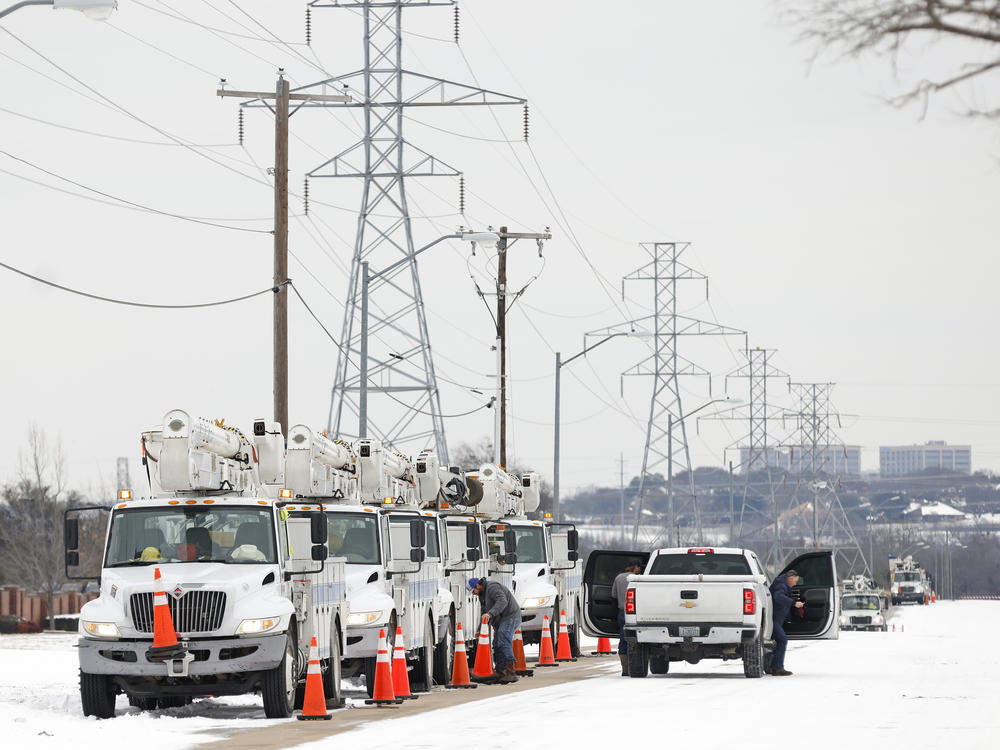Section Branding
Header Content
White House Adviser Says Texas Outages Show How U.S. Is Unprepared For Climate Change
Primary Content
The extreme weather conditions in Texas, where a winter storm has caused widespread power outages, should serve as a reminder that climate change is real and the United States not fully prepared to deal with its impact, said White House homeland security adviser Liz Sherwood-Randall on Thursday.
"The extreme weather events that we're experiencing this week across the central, southern and now the eastern United States do yet again demonstrate to us that climate change is real, and it's happening now, and we're not adequately prepared for it," said Sherwood-Randall, who also serves as deputy national security advisor.
"Power grids across our country, particularly in Texas, are overloaded by the demands that are placed on them under these circumstances, and the infrastructure is not built to withstand these extreme conditions," she added.
Sherwood-Randall said the federal government will work with states to incentivize efforts to reinforce infrastructure against adverse climate events.
The former deputy secretary of energy joined Thursday's daily White House press briefing to discuss the federal response in Texas and other states affected by winter storms.
The Biden administration has approved the federal emergency declaration requests of Texas, Oklahoma and Louisiana.
In Texas, FEMA is providing generators to support water treatment plants, hospitals and nursing homes across the state, said Sherwood-Randall. It is further supporting the state by providing other supplies as requested by Texas Gov. Greg Abbott.
"Specifically in Texas, it has made 60 generators and fuel available to support critical sites like hospitals and water facilities," Sherwood-Randall said. "It has moved in 729,000 liters of water, more than 10,000 wool blankets, 50,000 cotton blankets, and 225,000 meals."
FEMA and the Department of Energy have also been talking with private energy companies to explore whether there's more that can be done to provide support to the affected regions, she said, noting that though power outages are being reduced, blackouts will continue.
Sherwood-Randall said that it's not physically feasible at the moment to connect the Texas' independent power grid to the national grid, but the Energy Department is relaxing some environmental standards on an emergency basis to allow Texas to bring additional energy generation online.
Copyright 2021 NPR. To see more, visit https://www.npr.org.

